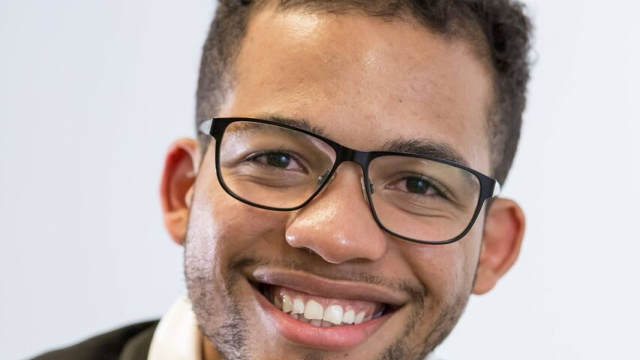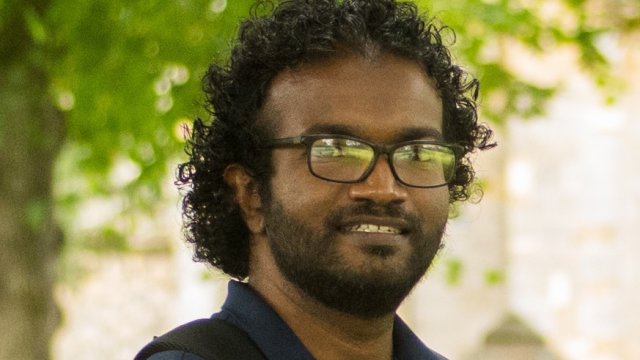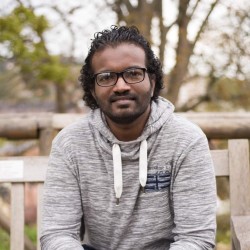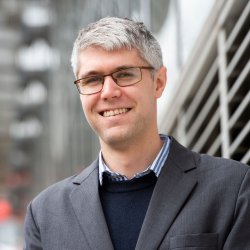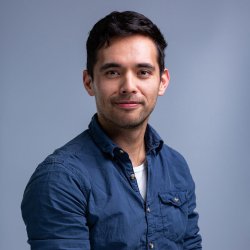How three Surrey PhD students learned about innovation and impact
We recently finished our first successful pilot giving our Surrey PhD students the chance to learn about research and innovation by helping us with data and information gathering on awarded EPSRC IAA projects.
The Impact Acceleration Account (IAA) aims to accelerate the exploitation of current or recently completed EPSRC, STFC, ESRC, and MRC funded research, through the increased engagement with key stakeholders and project partners. This in turn will demonstrate the impact Surrey's research has had and is having on society in the UK, both socially and economically.
The three PGR IAA Officers learned:
- What makes a successful grant application
- How projects are formulated, planned, and executed
- How a research idea can have its impact maximised through commercialisation, industrial participation, and community outreach
In addition, they gained invaluable opportunity to network with the Principal Investigators from across the university to build their research networks and learn from Surrey’s talented community of innovators. You can read about their experiences here.
Background and motivation
[Michael]
When I applied for the role, I was interested in finding out more about the process of grant writing, what kinds of projects are considered innovative, and how projects develop once funding is awarded. Part of the reason why I was interested in the role is because innovation is not a topic that is widely discussed within the social sciences. The other part is that I am personally interested in the intersection between research, technology, and commercialisation within higher education. Particularly how cutting-edge research and ideas can bring about social good.
[Delika]
Searching for part time work and coming across this role made me curious as to what it would bring about if I got selected. I did not have any idea about IAA and all the programmes around it. However, the experience has been wonderful and exciting.
[Yendle]
I applied for the IAA Officer role to gain a greater understanding of innovation at Surrey, and of the interface between academic research and commercialisation in general. I was also interested in learning about research projects and activities outside of my own department.
Interest in Innovation
[Michael]
The academic institutions are arguably the start of this [innovation] casual chain as they are the knowledge hubs that produce bleeding edge research that we are yet to test. I think motivation is an important part of taking that idea forward from the concept to an actual executable project that is proposed as part of a grant application. I would say that opportunity was not something that I considered as much before undertaking my role. However, what I soon learnt is that the timing of coming to market with an idea is crucial part of if it will be a success. Too early and there might be no perceived need for your product, too late could mean that competitors have already flooded the market of have the backing of all the major partners. It’s a fine balance.
[Yendle]
Before undertaking this role, I had thought of innovation as a fairly linear process, with natural beginning and end points (i.e., from conceptualisation, through R&D, to a novel end-product or service). I now understand innovation as a much more complex, iterative process, often involving different stakeholders and factors at different stages.
Recognise Dpt/Faculty need for skills
[Michael]
I feel that within the social sciences the process of defining, proposing, and delivering impactful/commercially successful projects is not particularly clear. While undertaking research might be new and interesting the term innovation is never quite used. However, having now spent some time working withing the innovation team I can certainly say that I have a better understanding of the breath of activities that can be considered innovative. From projects that promote policy change to the development of new inventions.
[Delika]
The biggest barrier for innovation, from my point of view, at times, is the opportunities that a particular individual or a group of people get. Opportunities can vary from things like funding and facilities to other limitations and boundaries such as limited opportunity for research that interests them. Finding the correct expertise, in academia or industry, especially someone who can guide you through the initial stages of research isn’t an easy task. Getting a proper guidance initially would not only motivate but also create enthusiastic researcher and bring forth the innovator within you. However, with programmes such as Commercialisation Fellowship, IAA funding, etc. the search for expertise can be widened and hence provide better opportunity to ECRs to further their ideas and contribute to society.
[Yendle]
It’s clear that realising impact from research has become more important in academia over recent years or decades. However, such ‘impact’ is often still determined or evidenced by more traditional metrics of academic success, such as number of journal publications. Although it appears that things are steadily changing (e.g., a shift in focus on the quality, rather than the quantity, of research papers), it will no doubt take time for the culture of academia to change. In the meantime, I think it’s important that Surrey continues to support innovation at each level, from encouraging student enterprise to recognising and rewarding innovative research staff.
How has your experience in the role changed your approach to innovation?
[Michael]
It has certainly broadened my view of the range of projects that could be said to be innovative. Equally, my work with current and previous principle investigators has taught me a great deal about the importance of engaging colleagues from across departments to support with the successful delivery of projects.
[Delika]
The experience as an IAA officer has opened up a whole avenue, not only to all the opportunities that researchers get through funding and commercialisation, but also to innovations that take place in different areas of research across different fields.
[Yendle]
My experience as an IAA Officer has opened my eyes to the various facets and potential avenues of innovation. I’ve learned that outcomes, although important, are rarely end points. I now see innovation as an open-ended conversation, where ideas feed projects that feed new ideas that feed follow-on projects, and so on. My approach to innovation has changed from one that tended to assume clear-cut questions and answers, or problems and solutions, to one that recognises the entangled complexity of research and impact.
What things have you learned? Was anything unexpected?
[Michael]
- A project is only as good as the team around it. The engagement of teams of researchers and commercial partners are core to the success of innovative projects.
- Failing fast is a good thing. Better to spend £3,000 of a demonstrator and scrap it that spend £30,000 on unviable product.
- There is something to learn from every research project. When things don’t go to plan there is always a chance to learn from the experience or pivot to a new project.
- Innovation is not a linear exercise.
[Delika]
The role has given me the opportunity to broaden my knowledge on some of the latest research taking place in different fields. Some of them, I’ve never even thought existed.
[Yendle]
One thing that I’ve learned, which is perhaps counterintuitive, is that failure is an integral part of the process. Iterative development based on fast failures is often more efficient than development based on a ‘perfect for release’ perspective.
What would you say to a prospective PGR considering applying to work with the technology transfer team?
[Michael]
Do it! Working alongside the Innovation team was one of the most productive and eye-opening elements of doing my PhD. I had the opportunity to speak to principal investigators and gain a deeper understanding of the range of challenges and successes they experienced accelerating their research and delivering impactful projects.
[Delika]
I would highly recommend working with this team. The experience and knowledge I’ve gained during the last few months has really widened my areas of interest.
[Yendle]
Go for it! In my experience, it’s been good to understand how innovation is supported by the university, how research outcomes can be commercialised, and various ways in which to formulate a successful proposal for commercially valuable research. It’s also been a great opportunity to meet other researchers from across the university and beyond.
